Exclusive: Jailed American's desperate plea for help in letters to Trump, Pence
The 53-year-old diabetic is on hunger strike to raise attention for his case.
After five years in prison, an American citizen jailed on trumped up charges in Egypt is pleading for his life to President Donald Trump and Vice President Mike Pence.
In two letters sent to the administration, obtained exclusively by ABC News, Mustafa Kassem recounts how he was beaten and arrested after Egyptian security officials discovered his U.S. passport amid a mass crackdown on opposition – and how he has started a hunger strike "because I am losing my will and don't know how else to get your attention."
"Dear President Trump: As an American beginning the hunger strike that could leave my two young children without a father and make my wife a widow, I pray that you secure my freedom from an Egyptian prison and government that you just gave $1.2 billion."
A 53-year-old diabetic, his family has urged him to stop, and his lawyer tells ABC News that his health is failing. He appeared very frail and weak during a visit Sunday, with his hands visibly shaking and his blood sugar dropping to a dangerously low level.
But Kassem writes that while he knows "full well that I may not survive," he has no choice.
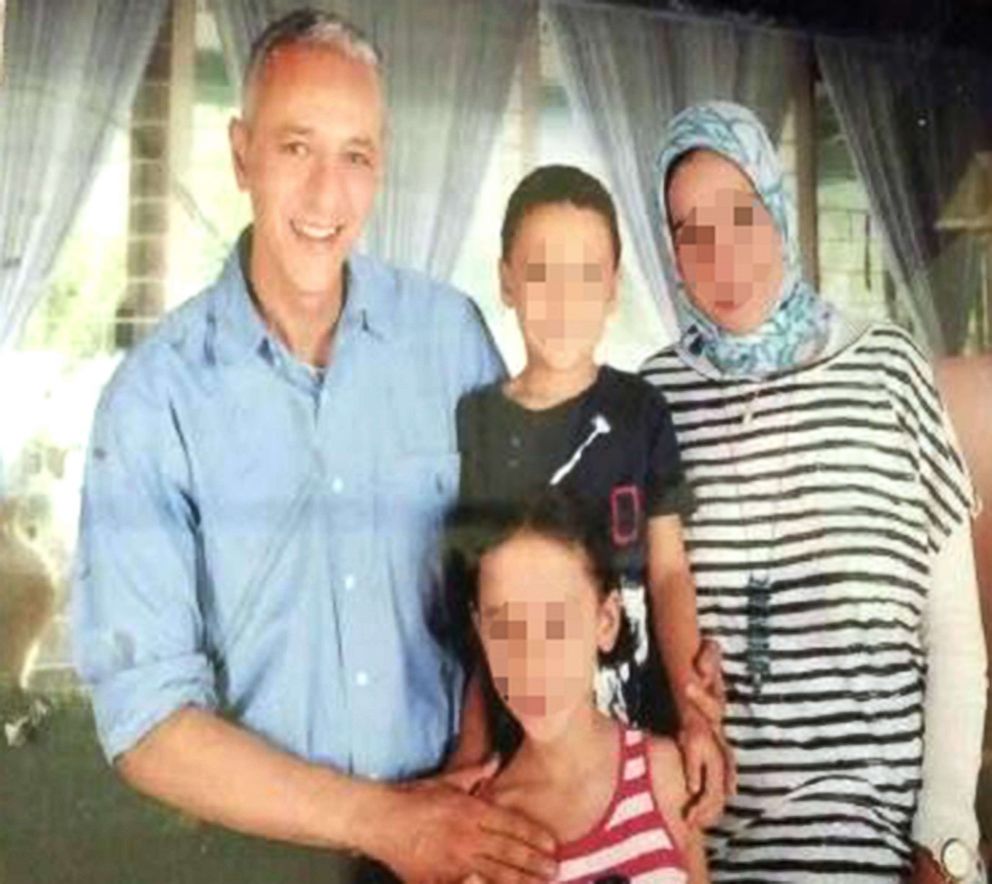
"I want my children to know that I fought tooth and nail for my freedom. I want them to know America is great because our government will fight tooth and nail for its citizens," he wrote in the letter addressed to Pence. Both are dated Sept. 12 and were sent to the White House on Sept. 13, according to his lawyer.
A New York City taxicab driver, Kassem started his hunger strike last week after being convicted of trying to overthrow the government of Egyptian President Abdel Fattah el Sisi and sentenced to 15 years in jail in a mass trial with more than 700 co-defendants.
Praveen Madhiraju, executive director of Pretrial Rights International and one of Kassem's lawyers, has called the charges against his client "bogus," adding that he's "an innocent American" and the situation is a "disgrace."
Kassem was in Egypt in August 2013 visiting his wife and two children, then 3 and 6 years old. It was a particularly volatile moment in Egypt's recent history -- one month after the military seized power following days of protests against the democratically elected government of Mohamed Morsi.
In Morsi's place, then-General Sisi took control, implementing a crackdown on political opposition and civil society that has since expanded. About 20 Americans currently are in Egyptian jails, but there are as many as 60,000 political prisoners across Egypt, according to a Human Rights Watch report last year.
On Aug. 14, 2013 -- the night before Kassem was set to return to the U.S. -- he went out to exchange some money and shop when security officials detained him and his brother-in-law, accusing them of participating in protests against the military takeover in a nearby square. The military was cracking down on the demonstrations in what human rights groups say was the single deadliest incident in Sisi's sweep to power, with as many as 800 killed.
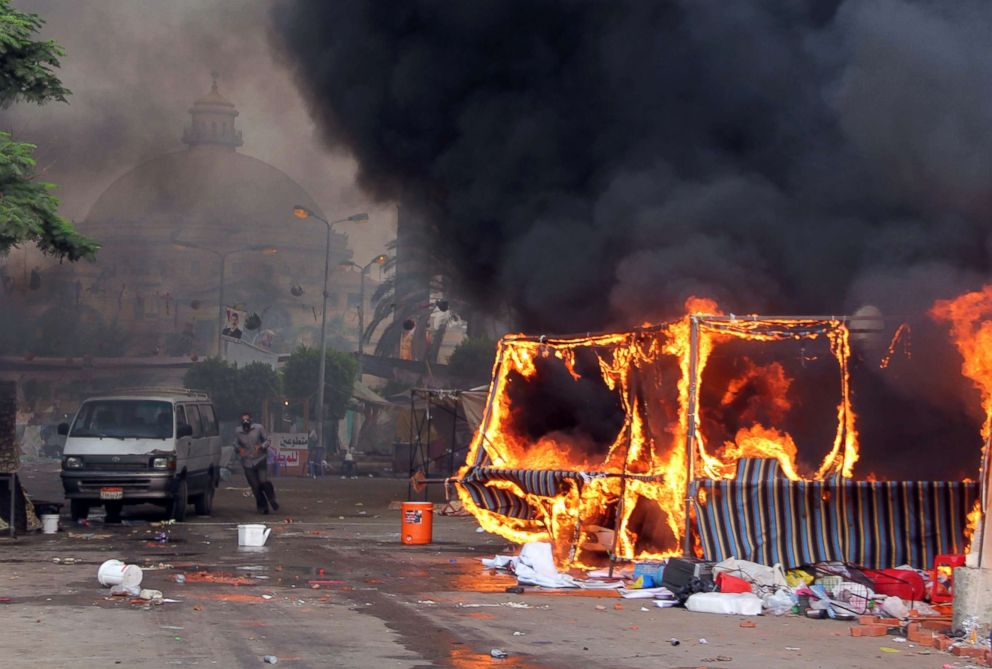
While his brother-in-law was released, Kassem was accused of being an American spy because of his U.S. passport.
"Although the beatings eventually stopped, these prisons and their guards did they best to wear me down for more than five years," he wrote to Trump.
In Egyptian jails, he has been denied regular access to medical treatment, including insulin, his lawyers said, leading to dangerous drops in blood sugar like the one this past week. Multiple requests by his family to have him hospitalized have been denied or simply ignored by Egyptian authorities, but he has been moved to solitary confinement to monitor his health.
Still, now that he is on hunger strike, his family worries he is running out of time. Kassem was sentenced to 15 years in prison, and, after serving five years, he now faces ten more, according to his lawyer.
"My brother is dying slowly. He is giving up hope," his sister, Iman Kassem, told ABC News in a statement.
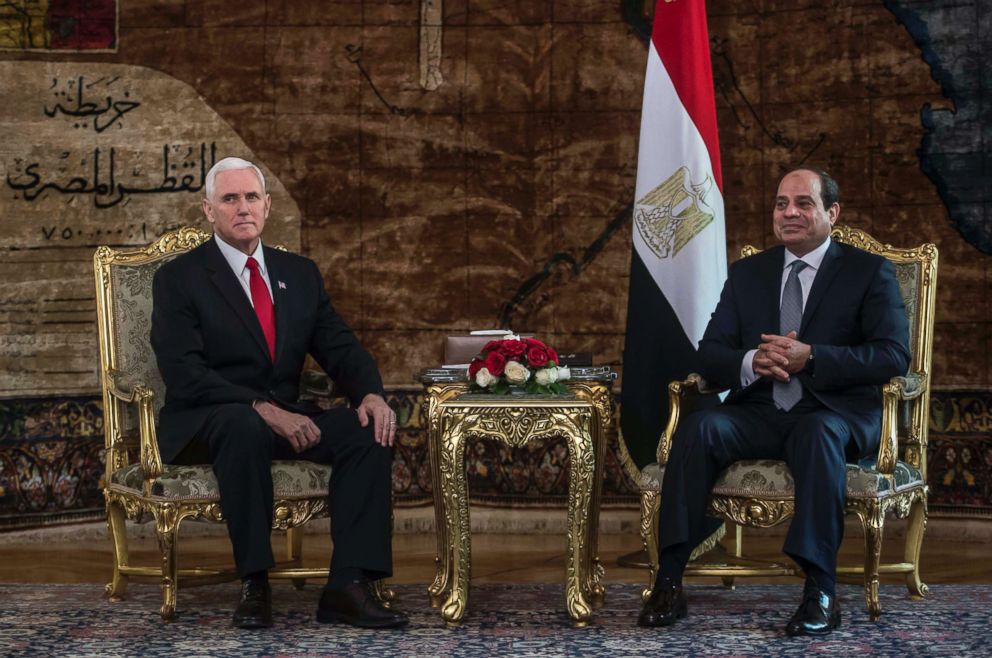
Kassem's case has been followed by the Trump administration, with Pence saying he raised it directly with Sisi when the two met in Cairo in January. In his letter to Pence, Kassem thanks him for those words, calling them "little rays of light" and hope that "my government still cared for me."
"But since January, I have seen no change and little action from either the Egyptian government or our government," he wrote to Pence. "I am losing hope that you and our government are willing to take a hard stance and secure my freedom."
"Mr. Pence, I need your help. You once spoke for me. I now beg you to fight for me," he concludes.
Both letters were transcribed by a family member because Kassem was too weak to write them out himself, according to his family. He could sign his name to both, and his signature was verified by ABC News using previous legal documents.
The White House did not respond to questions Tuesday, including whether it had received the letters or if would raise Kassem's case directly with Sisi, whom Trump may meet next week during the United Nations General Assembly in New York.
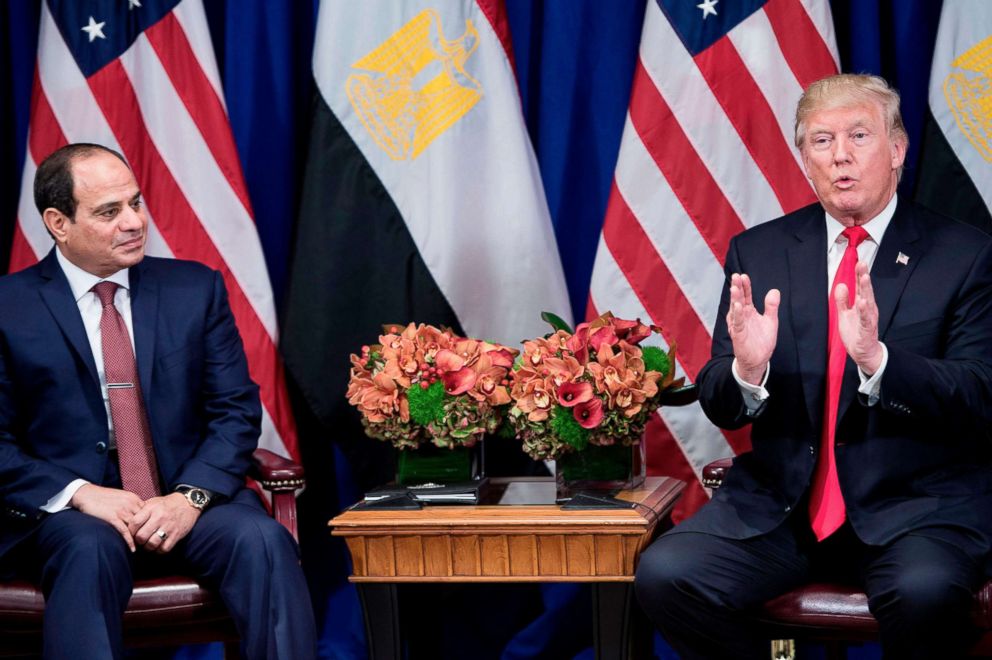
Madhiraju, Kassem's lawyer, said they also did not hear back from the White House or Pence's office.
The State Department has said the U.S. is "deeply concerned about his conviction and his sentencing. ... His case has been raised repeatedly with the Egyptian Government," according to spokesperson Heather Nauert. Officials from the U.S. embassy have conducted consular visits with him to check on his condition.
The Trump administration has been accused of going soft on Egypt, especially in recent weeks, even as Kassem and more than 700 "co-defendants" were sentenced en masse on Sept. 8 for the August 2013 protest. Seventy-five people received the death penalty, and more than 600 were sentenced to prison, including Kassem and the award-winning Egyptian photojournalist Mahmoud Abu Zeid, also known as Shawkan, who was covering the protests.
After withholding $195 million in aid to Egypt over human rights concerns in 2017, the State Department announced in July it was releasing that money "in the spirit of our efforts to further strengthen this partnership," an official told ABC News.
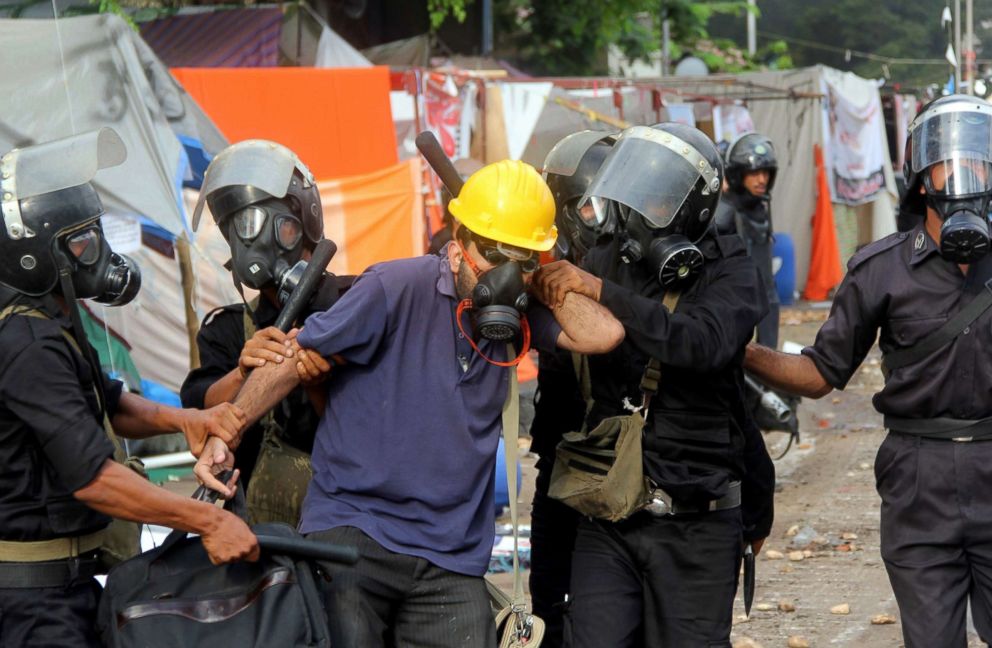
Just this week, the administration announced it had approved the possible sale of $99 million worth of tank rounds to Egypt, calling it a "friendly country" and "important strategic partner."
Annually, the U.S. typically provides Egypt with more than a billion dollars in aid and military assistance. That billion-dollar package is one reason Kassem said he believes "my government has slowly abandoned me."
But Trump's tight bond and warm words with the strongman Sisi have yielded some results, too.
In April 2017, Egypt freed Aya Hijazi, a U.S. citizen and humanitarian aid worker, her husband Mohamed Hassanein and four others after Trump and top aides urged Sisi to do so as a goodwill gesture. Afterward, Hijazi met Trump in the Oval Office, which he called a "great honor."
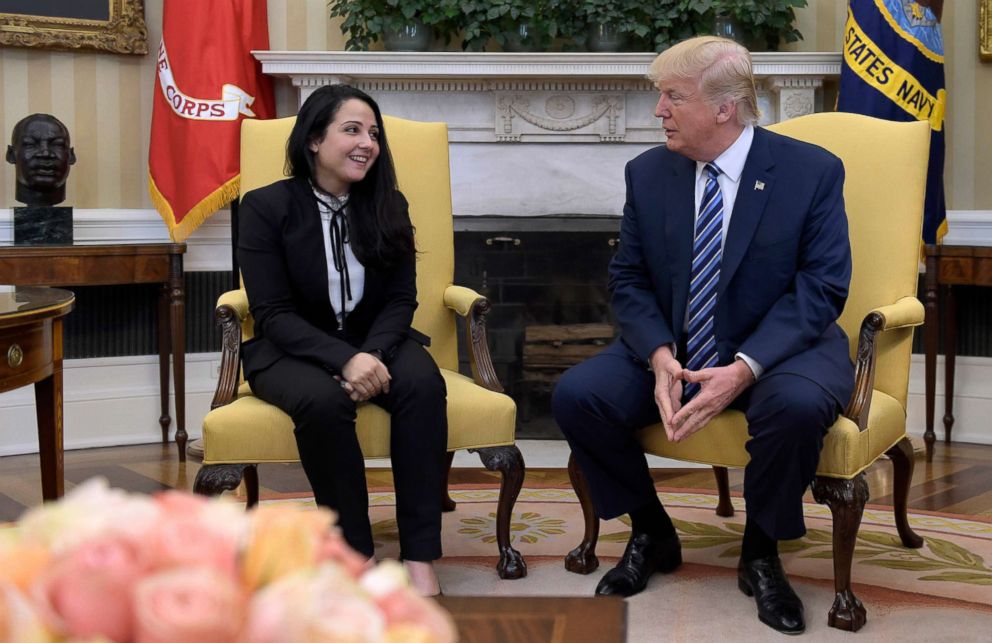
Kassem wrote to Trump that he has been left praying for a similar reception: "I pray that you have a plan for me. I have seen you defend other jailed Americans. I ask you -- why not me?"
His family said they have lost their patience.
"His life is in danger because he showed his American passport, but President Trump has done nothing about it and Vice President Pence has not done enough," his sister, Iman, told ABC News. "They know about Mustafa's condition, and they can save him. They are as responsible for his life as anyone else."
This story is featured in the Wednesday, Sept. 19, 2018 episode of the ABC News daily podcast, "Start Here."
"Start Here" is a daily ABC News podcast hosted by Brad Mielke featuring original reporting on stories that are driving the national conversation. Listen for FREE on the ABC News app, Apple Podcasts, TuneIn, Spotify, Stitcher, Google Play Music, iHeartRadio -- or ask Alexa: "Play 'Start Here.'"
Follow @StartHereABC on social for exclusive content, show updates and more: Twitter, Facebook, Instagram.



